- News
- Reviews
- Bikes
- Components
- Bar tape & grips
- Bottom brackets
- Brake & gear cables
- Brake & STI levers
- Brake pads & spares
- Brakes
- Cassettes & freewheels
- Chains
- Chainsets & chainrings
- Derailleurs - front
- Derailleurs - rear
- Forks
- Gear levers & shifters
- Groupsets
- Handlebars & extensions
- Headsets
- Hubs
- Inner tubes
- Pedals
- Quick releases & skewers
- Saddles
- Seatposts
- Stems
- Wheels
- Tyres
- Tubeless valves
- Accessories
- Accessories - misc
- Computer mounts
- Bags
- Bar ends
- Bike bags & cases
- Bottle cages
- Bottles
- Cameras
- Car racks
- Child seats
- Computers
- Glasses
- GPS units
- Helmets
- Lights - front
- Lights - rear
- Lights - sets
- Locks
- Mirrors
- Mudguards
- Racks
- Pumps & CO2 inflators
- Puncture kits
- Reflectives
- Smart watches
- Stands and racks
- Trailers
- Clothing
- Health, fitness and nutrition
- Tools and workshop
- Miscellaneous
- Buyers Guides
- Features
- Forum
- Recommends
- Podcast
TECH NEWS
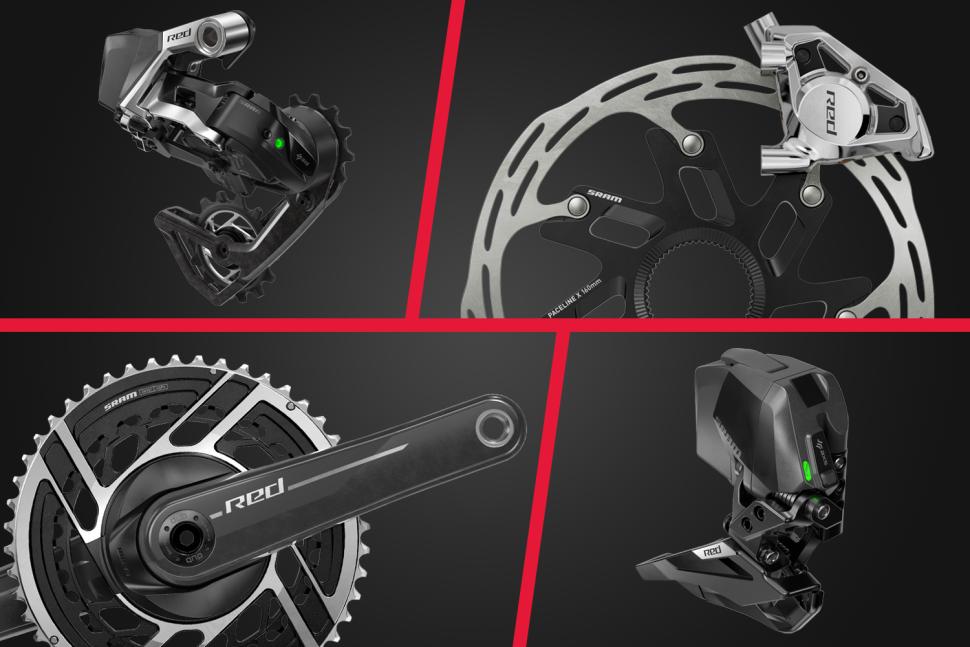 SRAM Red AXS May 2024 (1)
SRAM Red AXS May 2024 (1)SRAM introduces new Red AXS as “the lightest electronic groupset ever”
SRAM has officially launched its new Red AXS top-level road groupset, claiming it is the lightest electronic option ever after a complete revamp. SRAM also offers lighter braking, improved front shifting, and more control courtesy of a 'Bonus Button' on the side of each shift-brake lever hood.
Are you surprised by the launch? No, neither is anyone else. We've seen SRAM Red AXS here, there, and everywhere over recent weeks and months, and now it has been officially released. We have a full review ready for you here on road.cc so you can get our experiences in full. Here, we’ll give you the essential tech news about the new groupset and outline SRAM’s claims.
> Read our review of the 2024 SRAM Red AXS groupset
Jason Fowler, product manager for SRAM road drivetrains, says, “Red AXS represents the lightest electronic groupset ever, and its rider benefits position SRAM as the technology leader in road drivetrains.
“We’ve designed the new SRAM Red AXS to be the most effortless drivetrain to use. We've refined every part of Red to create effortless one-finger braking, smooth front shifting, fully wireless connectivity, and expanded gearing choices to fit every rider need out there. We've packed in every feature we could, like accurate and reliable power measurement, new shift points, and more brake adjustability, while still shaving grams off every component.”
Just to start you off, here's what SRAM says in brief:
- New hood and lever shape for improved comfort.
- Lighter braking action “allows one-finger braking from the hoods” and is designed to reduce hand fatigue.
- New ‘Bonus Button’ allows shifting or control of ANT+ devices from the side of the hood.
- Improved front shifting.
- SRAM Red AXS is 12-speed.
- It is available only with hydraulic disc brakes.
- New components are compatible with the previous-generation 12-speed Red AXS groupset and all AXS groupsets in the line today.
- Red AXS can be used on gravel, but it’s primarily for road use
- New Zipp SL 80 Race handlebar is designed for use with SRAM Red
- Zipp introduces new tyres with Goodyear to ensure safe retention on its rims
We’ll come back to the weight claims later on. First up, what features have been updated?
One of the most obvious changes is the all-new hood and lever design that we’ve seen pro riders using over the past few months. The shape has been altered completely, the hoods being much shorter and more rounded than previously. SRAM has taken the primary piston from the pommel at the front and moved it into the body of the hood.
“We've overhauled our hood and lever architecture, which gives riders greater comfort on the hoods, more power when braking, and less hand fatigue,” says Jason Fowler.
“The new design requires 1/5th the effort when braking from the hoods compared to Red eTap AXS. This gives riders the option for one-finger braking from the hoods.
“When braking from the drops, the new design requires 1/3rd the effort of Red eTap AXS – so less effort, less hand fatigue, a lighter feel in a more usable power range due to the lever architecture.
“The new piston is now a push piston design with a higher pivot on the brake lever. The rider benefit here is again less effort and less force to actuate the brake.”
Those are some pretty big claims on the reduction in effort. Head over to our review to see how Stu has found the SRAM Red braking performance out on the road.
SRAM says, “The hood and brake lever shape on the Red AXS shift-brake controls have been optimised, significantly increasing finger and handlebar clearance over previous generation controls. They have been designed to fit the widest range of hand sizes and have textured shift paddles and hoods for control and comfort.”
The body of the hood is longer than previously, SRAM saying that this offers enough space for three to four fingers and provides more control for the rider.
“We've achieved breakthroughs for fit across all hand sizes, with easy access to powerful and smooth braking from anywhere on the bar,” says Jason Fowler. “The new design also allows riders to dial in reach [the distance from the lever to the bar] separately from pad contact adjustment [the distance from the pads to the disc rotor, controlling brake engagement].”
The idea is that you can set things up how you like ’em.
One other interesting addition is the ‘Bonus Button’ that sits on the inner face of each hood.
“The Bonus Button comes as a standard shifter out of the box,” says Jason Fowler. “From there, you can connect it with AXS or other ANT+ devices, and program it to do other functions through the AXS app, or you can set it up to configure the new Hammerhead Karoo head unit.
“When you look at how riders are racing these days at the top level, more and more are up on the hoods. They still go on the drops, but you’re seeing more riders in pursuit mode – whether that's in the Tour de France or even the Spring Classics – up on the hoods. Ergonomics were a big focus for this development, and having that shift lever up there allows riders not to move when they're in that pursuit position.”
You can add up to eight Wireless Blips (supplementary controls), configuring them through the AXS app. You no longer get wired ports. SRAM says that removing them (as it did for the latest version of Force) allows it to reduce the size of the controls and improve ergonomics.
SRAM has done a lot of work on the brake calliper too.
“It’s a two-piece calliper and we've moved the pressure of the piston further outboard,” says Jason Fowler. “With the centre of pressure further outboard, it applies the pressure of the pistons and the path to a more usable space on the rotor.”
The calliper is a far more open design than previously and we can’t help thinking those gaps could act as mud traps in wet UK conditions. On the flip side, SRAM says the HRD Shift-Brake System (as a pair) is 83g lighter than before.
Out back, the rear derailleur is said to be “lighter, more efficient, and more capable than ever”. That’s 16g lighter than before, if you’re counting. The X-Sync pulley wheel is larger than its predecessor – to decrease chain articulation and increase efficiency – and spins on ceramic bearings.
The rear derailleur covers cassette ranges from 10-28T up to 10-36T, as previously, and still uses an Orbit fluid damper to keep the chain from jumping on rough surfaces.
SRAM reckons that the front derailleur shifts better than previously.
“The Red AXS front derailleur has a refined and narrower front cage design to ensure better control of the chain while shifting, along with an auto trim feature for rasp-free operation as you change gears in the rear,” it says
The updates “result in faster and more accurate front shifts”, according to SRAM. This is perhaps the most criticised element of previous versions of SRAM Red, so check out our review to find out if we think the changes have been successful.
SRAM says that Red’s hollow carbon crank arms are lighter than before.
“The crankset was an area that took quite a bit of focus,” says Jason Fowler. “We have really refined our carbon layup process. Just in the crank arms alone, we’ve shed about 21-22g from previous generations. The weight savings is 29g across an entire crankset.”
SRAM has also responded to the trend towards shorter cranks, introducing a 160mm option for the first time.
SRAM is sticking with its X-Range gearing – you can find out all about that here – so chainring options are the same as before: 50/37T, 48/35T and 46/33T (the front derailleur is compatible with 52/39T, 54/41T, and 56/43T aftermarket chainrings too). If you’d prefer a 1x system, cranksets with 48T and 50T chainrings are available.
As you’d probably guess, SRAM boasts that its Red AXS power meter is 29g lighter than before, courtesy of the crank arms’ altered carbon layup mentioned above.
The technology used for the power meter, which is integrated into the chainring, is unaltered, with SRAM claiming accuracy to within +/-1.5%, even if the temperature changes during your ride.
Onto the XG-1290 cassette, and SRAM has ditched its 10-26T option – because the market wasn’t into it (new SRAM Red is not compatible with the old 10-26T cassette) – and introduced 10-30T and 10-36T options to Red The existing 10-28T and 10-33T cassettes remain. SRAM likes to shout about the fact you get at least five one-tooth jumps on 10-28T, 10-30T and 10-33T cassettes – to minimise disruption to your cadence as you shift – while still offering a wide range.
SRAM’s previous Red chain used hollow pins and now it has gone full drillium with cutouts in both the outer and inner plates. This reduces the weight by a total of 13g, says SRAM. Hey, it all counts. Like the cassettes, the chain is available in a rainbow finish if you want to add some glitz to your life.
Following the same weight-shedding theme, SRAM has given the new Paceline X rotor its lightest-ever aluminium carrier. The rotor is available in 140mm and 160mm versions.
Finally, and unusually, SRAM has included the new Hammerhead Karoo cycling computer (£449.99) as part of the new Red AXS groupset. Controversial! Karoo has lived under the SRAM umbrella for the past couple of years but you wouldn’t usually consider a bike computer to be a groupset component. SRAM’s rationale is that the updated Hammerhead Karoo has been developed alongside Red and can integrate with the AXS system.
> Check out our review of the 2024 Hammerhead Karoo
“The new Hammerhead Karoo connects more easily and integrates more deeply with the SRAM Red AXS groupset than any other bike computer,” says SRAM. “In addition to the functionality you’d expect, like recording shift data during your rides, the new Karoo features exciting new functionality that only Hammerhead is able to provide.
“Highlights include automatically pairing to your new SRAM AXS products, detailed battery reporting for all of your components, and even the ability to reprogram your Bonus Buttons – from controlling your derailleurs to controlling Karoo – directly from your handlebars.”
We have just published a review of the new Hammerhead Karoo here on road.cc.
How much does SRAM Red AXS weigh?
SRAM gives the weight of the new SRAM Red AXS groupset, with power meter, as 2,496g. This is calculated with a 10-28T cassette, 172.5mm cranks, 48/35T chainrings, 160mm rotors, batteries, and brake fluid.
Cassette 180g
Bottom bracket 76g
Powermeter 580g
Rear derailleur 262g
Front derailleur 145g
Shift-brake system 689g
Chain 236g
Rotors 280g
Batteries 48g
For comparison, the previous SRAM Red eTap AXS groupset, with power meter, was 2,650g. Current SRAM Force AXS is 2,872g.
Shimano claims a weight of 2,507g for top-level Dura-Ace Di2, so we’re talking about a difference of just a few grams. Check out our video for a comparison of SRAM Red AXS and Shimano Dura-Ace Di2.
> Video: 2024 Sram Red AXS vs Shimano Dura-Ace R9200
How much does SRAM Red AXS cost?
You can buy the SRAM Red groupset, including the Karoo Hammerhead computer, for £3,000. However, that doesn’t include the crankset or cassette. Prices of those vary, depending on the sizes and options you choose.
A 10-28T cassette in a standard finish is £390, for example, while a 10-36T cassette in a rainbow finish is £470. It all starts to get a bit complicated, to be honest.
A standard crankset is £700 while a power meter crankset is £1,200 (£800 for the power meter kit, £400 for the crank arm assembly).
Here are the prices of the individual components:
Cassette (standard finish) £390-£410
Cassette (rainbow finish) £450-£470
Chain (rainbow finish) £100
Chain connector £17
Power meter kit, including chainring(s) £800
Crank arm assembly £400
Double chainrings (non-power) £300
1x chainring £240
Shift/hydraulic disc brake £675 (each)
Rear derailleur £700
Front derailleur £450
Buy the SRAM groupset (£3,000), add a cassette (£390), crank arm assembly (£400) and double chainrings (£300) and you’re looking at £4,090 (without a power meter). That includes a Karoo Hammerhead computer that retails separately at £449.99.
For comparison, a Shimano Dura-Ace R9270 groupset is £3,499, but that doesn’t include disc rotors at £65 a pop. Chuck them in and we’re up to £3,629.
Jamie goes into more depth on price comparison in his video, but there’s really not a huge difference between SRAM Red AXS and Shimano Dura-Ace if you pay full RRP.
Zipp’s new SL 80 Race handlebar is designed for use with SRAM Red
If all of this isn’t enough for you, the SRAM-owned Zipp brand has also announced a whole bunch of new components.
First up, there’s the SL 80 Race carbon handlebar (£340) which SRAM describes as “a premium aero-road carbon bar explicitly designed for use with the SRAM Red AXS groupset”.
How come?
“The bar features an overhang to cover the brake hose where it exits the hood,” says SRAM. “This shelf creates a platform that mates with the brake lever, providing an ideal perch for your hands while riding on the hoods. The drop shape has been refined to give the rider easy access to the brake lever while riding in the drops.”
The SL 80 Race also has locators marked on the drop and the top, designed to make placing SRAM Wireless Blips (satellite shifters) easier. The aero-shaped top section has a slight downward sweep so your hands don’t sit flat.
The SL 80 Race offers hidden external routing for routing your brakes’ hydraulic hoses into the stem. Zipp says that it includes “an easily applied heat-shrink grip that hides hoses and Blips, and a no-slip surface to hold”.
The Zipp SL 80 Race comes with a 80mm reach, 125mm drop. In terms of shaping, the drops flare at 5° and outsweep 8°, the idea being to provide more comfort and control while riding.
> Best road bike handlebars 2024 — fine-tune your bike's front end for comfort and performance
It’s available in widths from 36cm to 44cm, Zipp claiming a weight of 250g (42cm).
Zipp introduces new tyres with Goodyear to "ensure safe retention" on its rims
Zipp has also introduced new tubeless tyres, developed with Goodyear, featuring “a bead construction and geometry [that] ensure safe retention on Zipp rims”. You can find out all about those in this separate story.
Mat has been in cycling media since 1996, on titles including BikeRadar, Total Bike, Total Mountain Bike, What Mountain Bike and Mountain Biking UK, and he has been editor of 220 Triathlon and Cycling Plus. Mat has been road.cc technical editor for over a decade, testing bikes, fettling the latest kit, and trying out the most up-to-the-minute clothing. He has won his category in Ironman UK 70.3 and finished on the podium in both marathons he has run. Mat is a Cambridge graduate who did a post-grad in magazine journalism, and he is a winner of the Cycling Media Award for Specialist Online Writer. Now over 50, he's riding road and gravel bikes most days for fun and fitness rather than training for competitions.
Latest Comments
- chrisotherwise 6 min 25 sec ago
Thanks for all the kind replies. I was back on my bike yesterday and went and had a look at where I had my fall. No obvious diesel on the road or...
- the little onion 9 min 4 sec ago
Yes! An excellent and necessary campaign....
- Secret_squirrel 13 min 9 sec ago
The Highways Agency called. They want a billion miles of fence to make cycling safe on the roads. Less brain dead hyperbole please.
- brooksby 13 min 39 sec ago
IMO the problem with lots of waterproof jackets is the DWR layer, which (again, IME. YMMV.), generally isn't very D. And once that layer of...
- Bob Sprocket 13 min 50 sec ago
Toe clips, now we're talking.
- brooksby 16 min 29 sec ago
Exactly. What seems to be happening is that the Torygraph is opposed to ANY taxpayer money being spent on ANY cyclists.
- mitsky 1 hour 43 min ago
"The cyclist could have clipped the car by not paying attention when the driver stopped."...
- David9694 2 hours 45 min ago
Drivers react to Brinkworth Road Lidl works causing delays...
- philhubbard 3 hours 57 min ago
Absolutely not. I work for a cycling company and regularly travel to Europe with a bike, I always get stopped to check if I had products to sell in...
- David9694 4 hours 26 min ago
Woman arrested after car flips onto roof in Oxford crash...
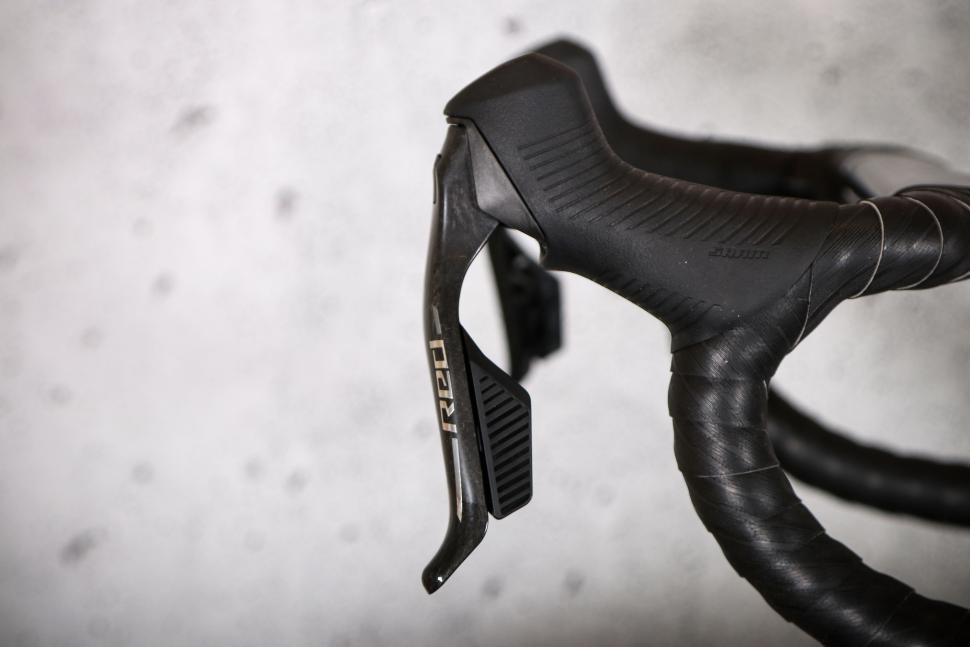
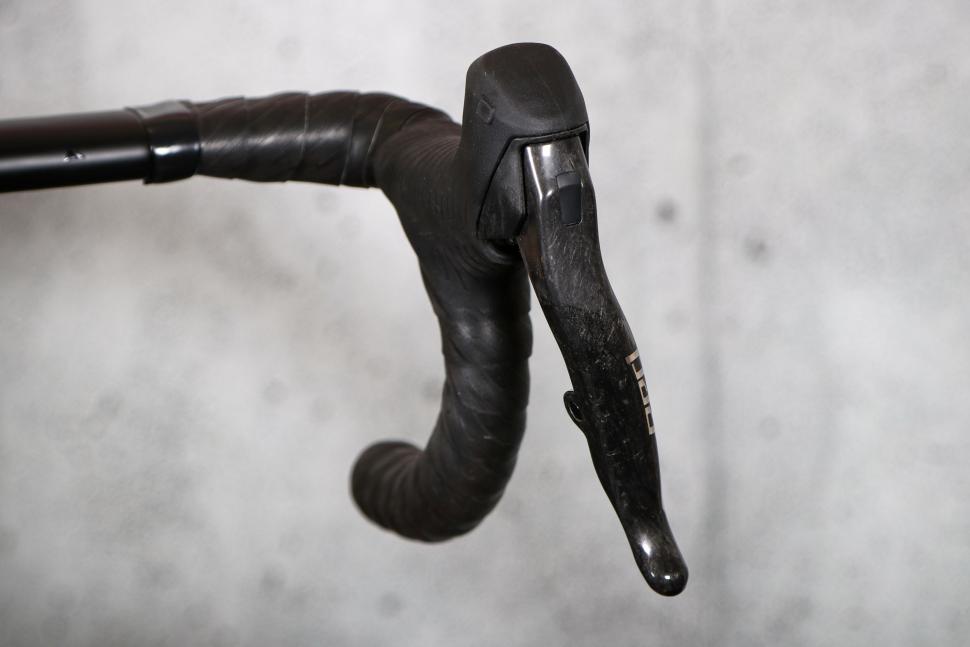
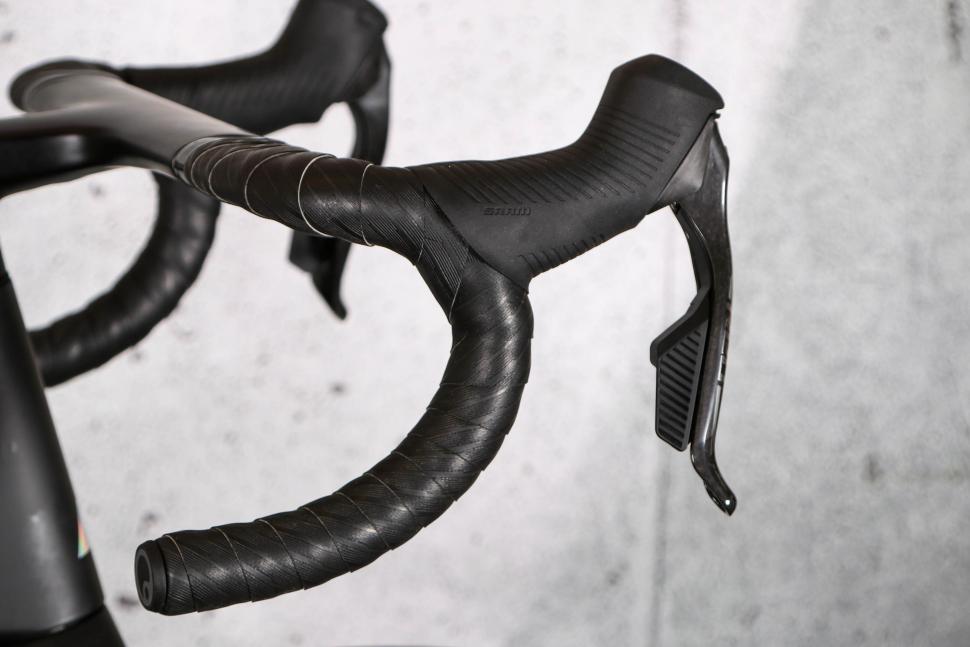
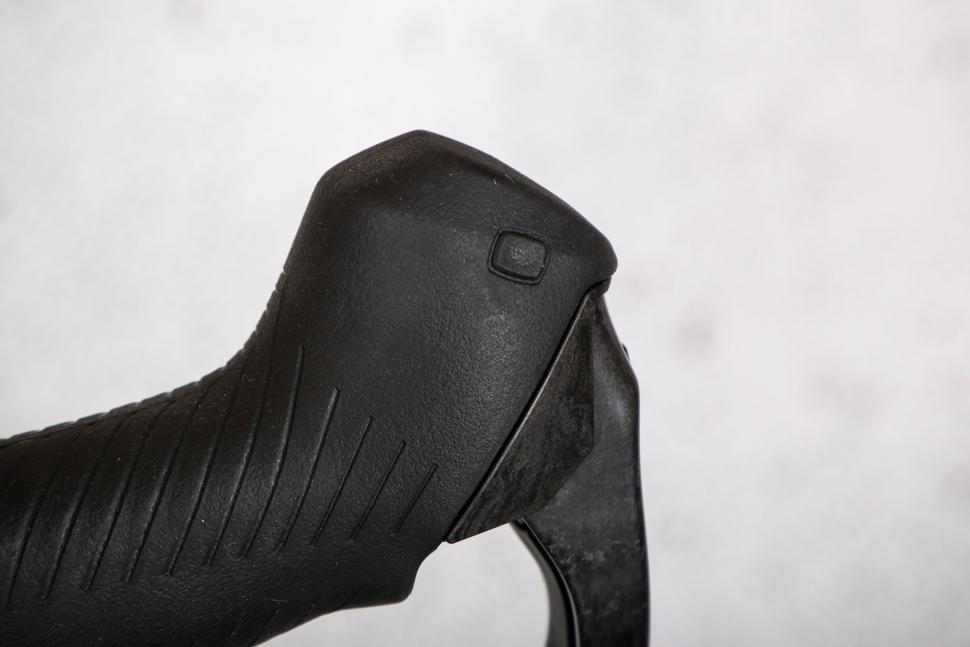
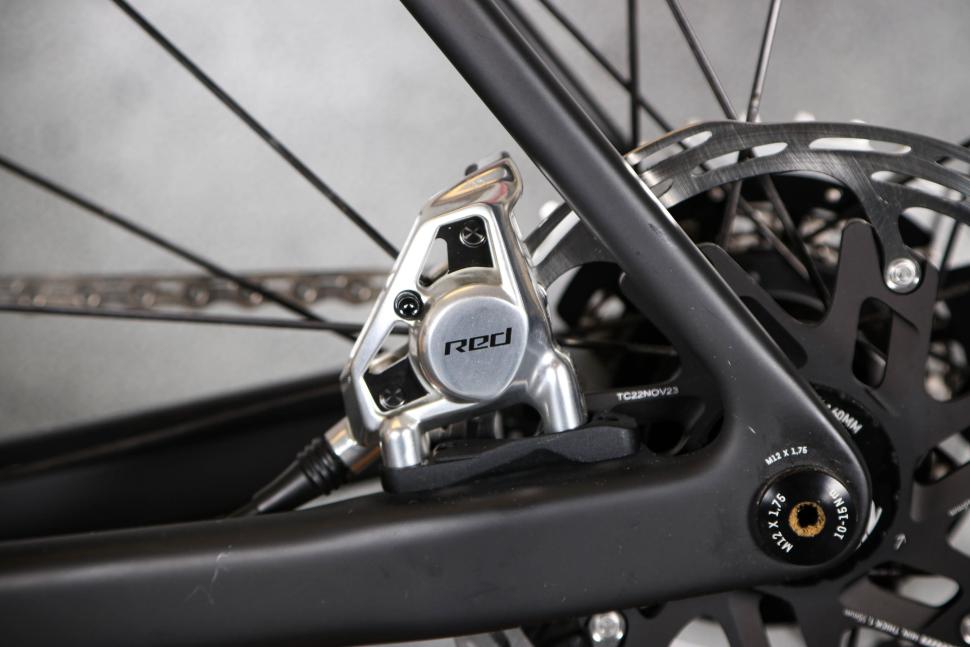
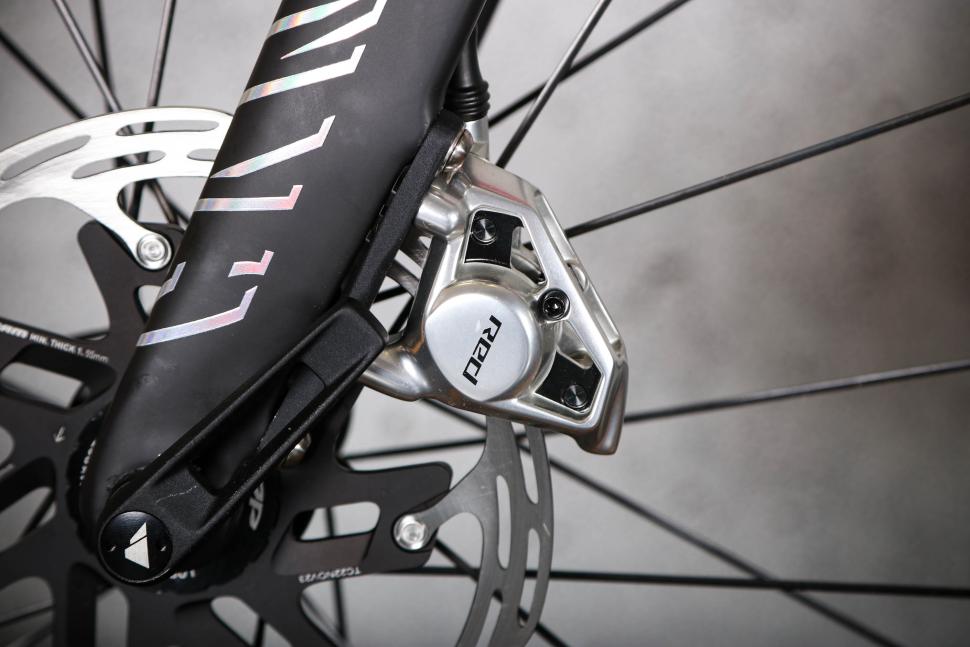
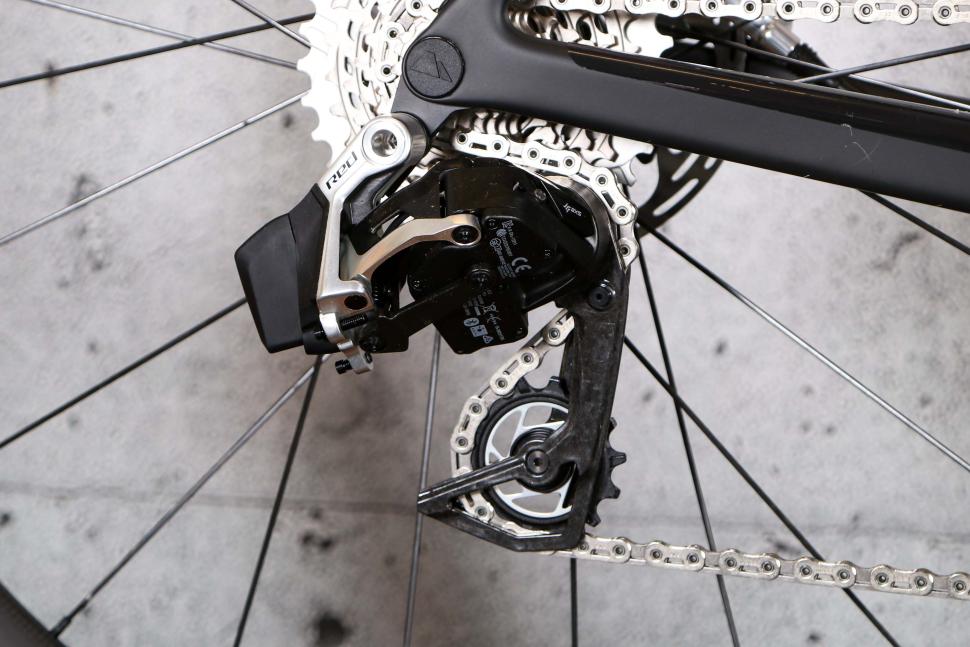
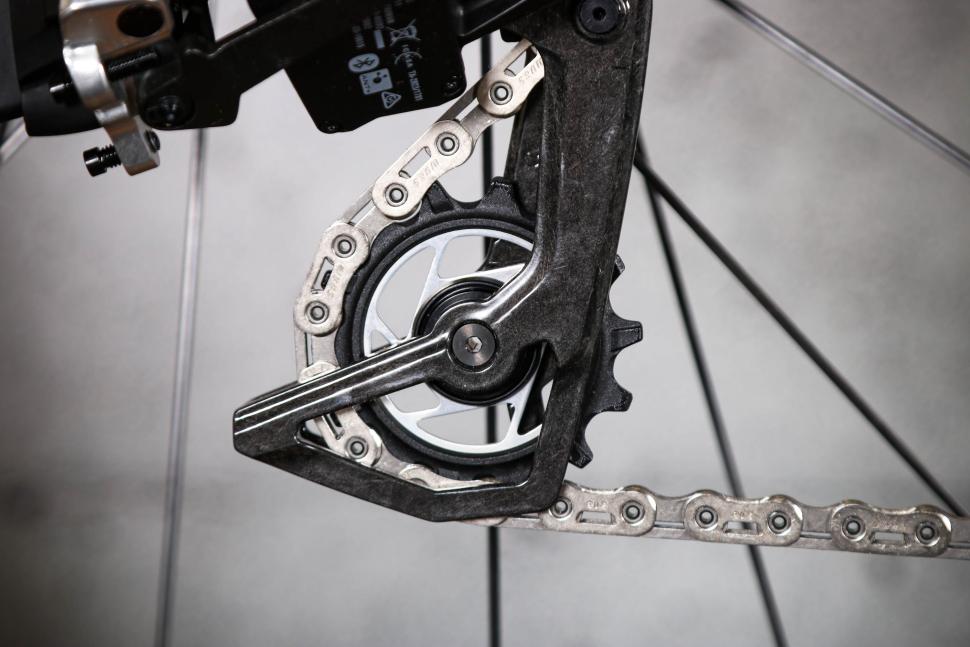
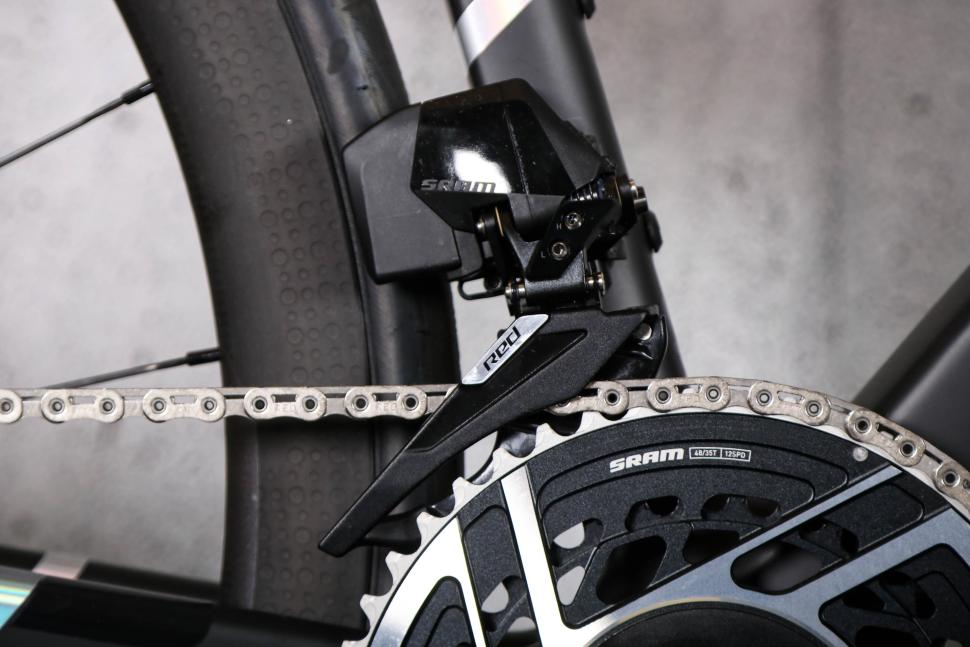
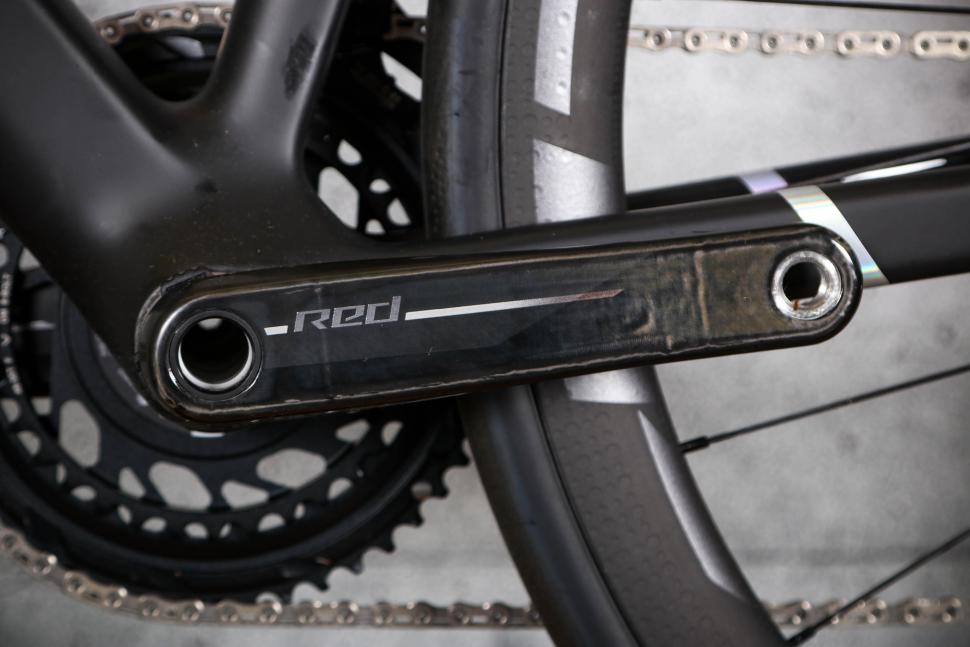
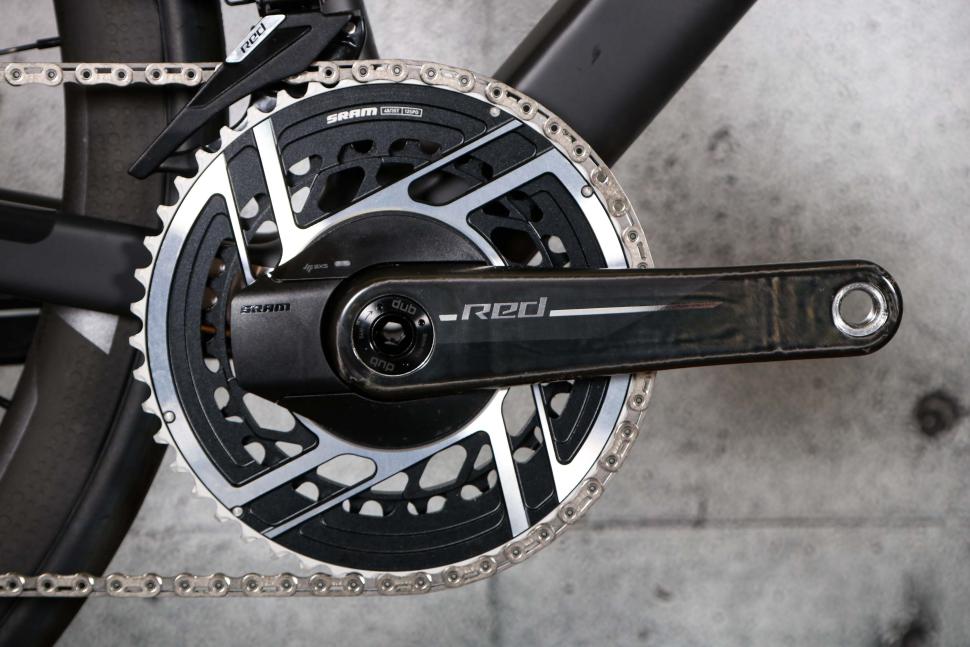
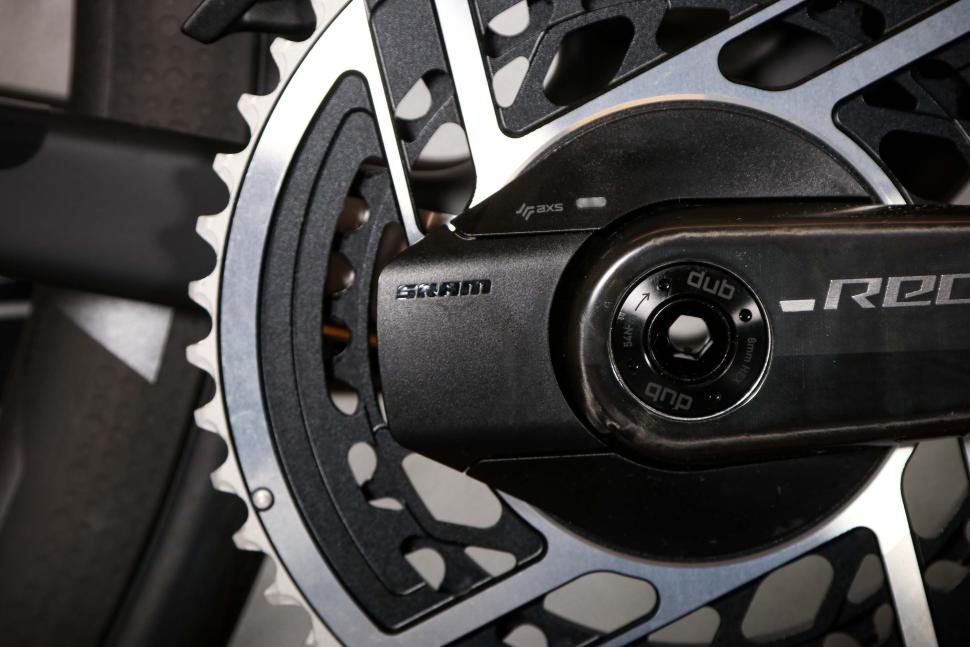
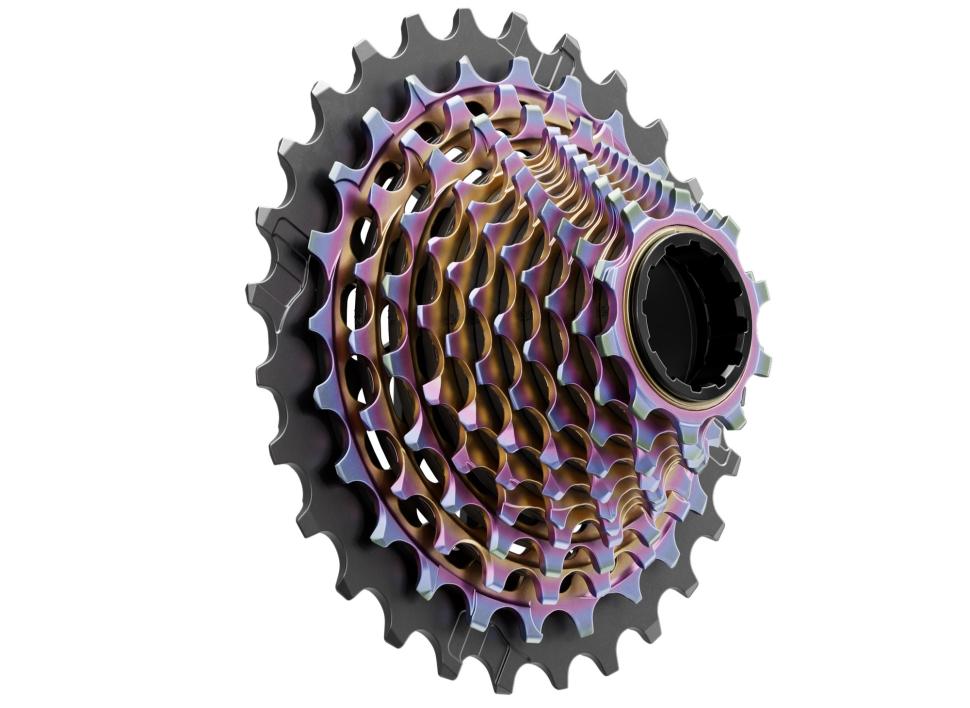

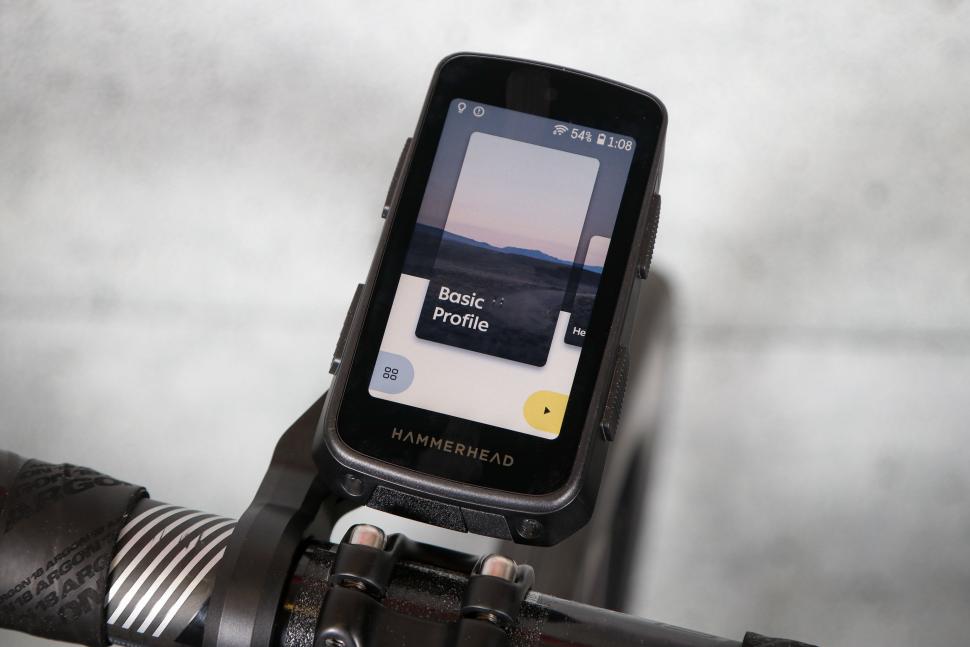
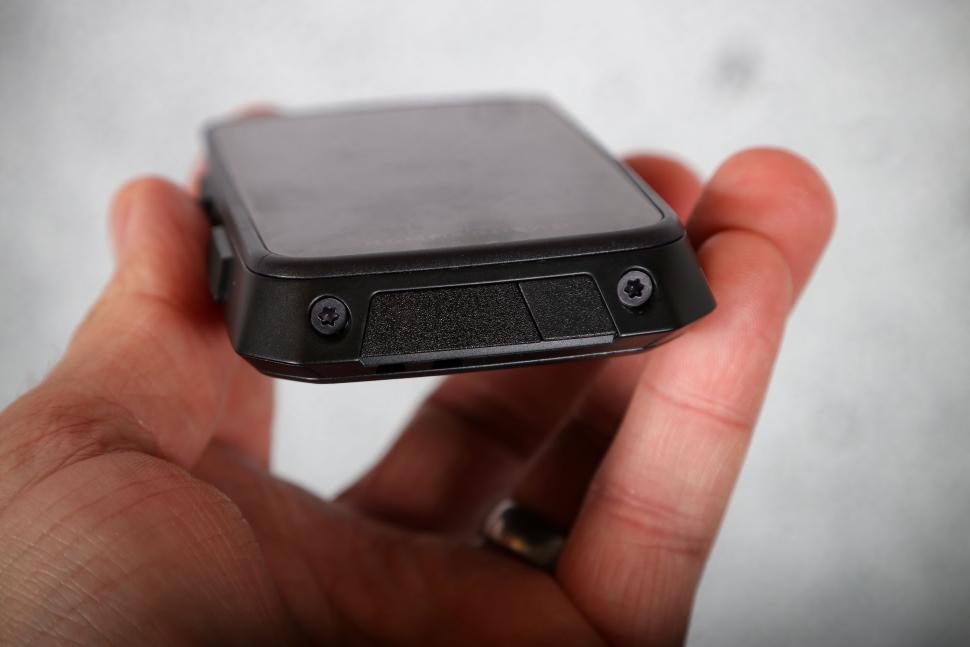

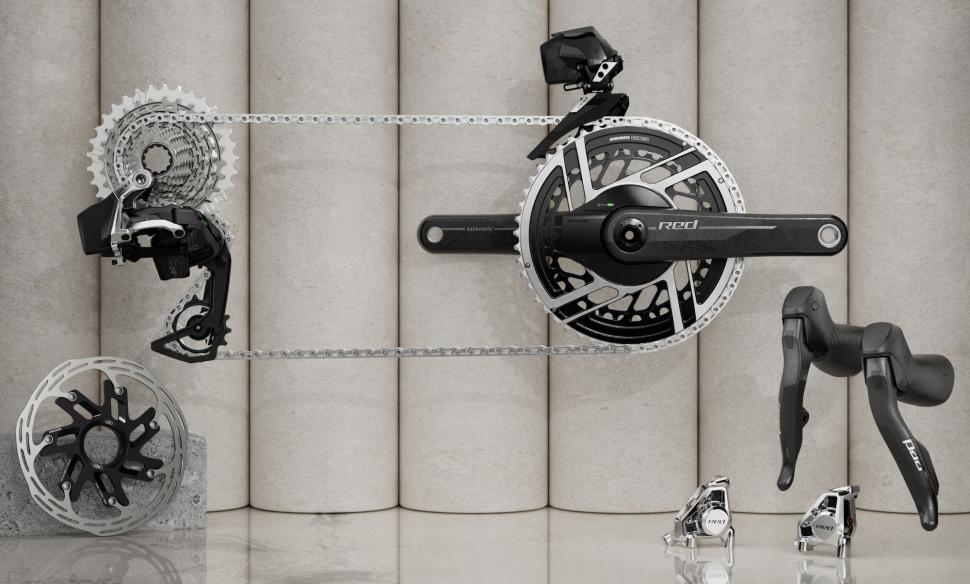
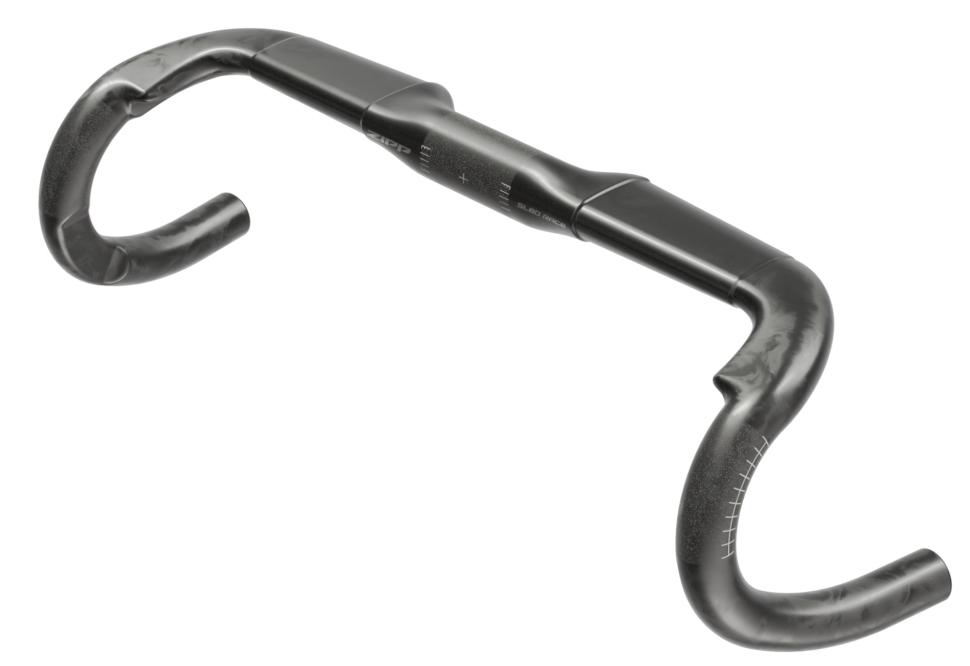
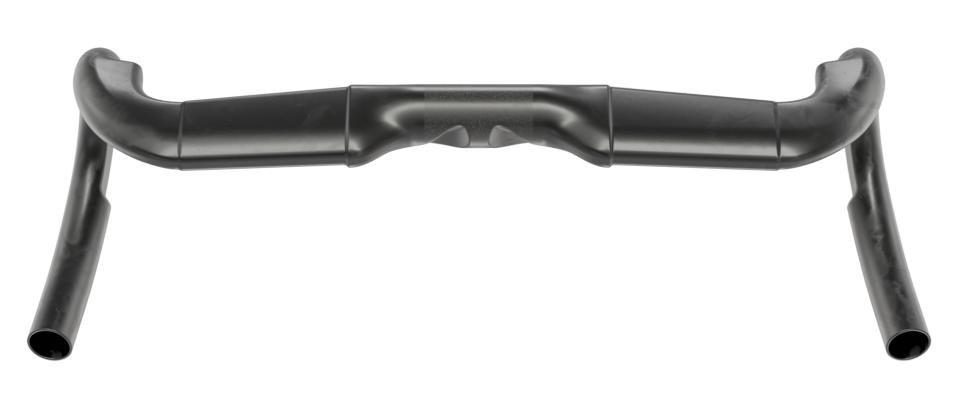
Add new comment
17 comments
£3,000 and you then have to spend yet more money to get a complete groupset? LOL
Astonishing figures but I was struck by quite a small one: £17 for the chain connector?
You can't trust those weights to be perfect. You don't know what type of BB each total includes, cassette/chainring sizes, etc. It's always hard to compare precisely. Plus, there are manufacturing tolerances/variances so one group could be 1-2% (25-50 grams) heavier than another "identical" group from a different production run / day of the week. If the total is within 50-100 grams then I call it a tie. I always expect the brand marketing guys to get excited about the precise numbers, but I would hope that the road.cc journalists are more realistic.
we're clearly going to have to wait a few months for the real prices as opposed to rrp launch prices to become clear....not sure what my threshold price would be for upgrading shifters/calipers would be (certainly not £1300) - only change that makes sense - or when the force version will appear.
Is there a rim brake option?
Er...most probably not. I mean where's the money to be made in something that's backwards compatible?
Aren't the levers backward compatible?
Mildly terrifying prices. Buy at OEM and get a free frame and wheels, or alternatively get a job in law/dentistry/property in surrey.
The shifting on the last version of this was nowhere near as good as reviews made out, so i wonder if thats improved; it was no better than mechanical tiagra (but then, shimano do this stuff miles better anyway...)
I'm sure it works well, but does anyone else yearn for the days when groupsets actually looked good? Shimano and Sram have been dishing out the ugly injections for some years now.
I'm guessing Hammerhead head units aren't exactly flying out the door if they're being included with a new groupset.
For comparison, the previous SRAM Red eTap AXS groupset, with power meter, was 2,650g. My SRAM Red ETap from 2017 weighs in at 1970g!
“the lightest electronic groupset ever” made for Sram....DA less weight
Are you saying the figures in the article are wrong (DA 2507g; Red 2496g) ?
Well done you. Why be polite to a fellow commenter when you can be rude to him instead?
and according to other scales the DA weighs a little less than what Sram says this "renewed" Red weighs... it still seems like the front derailleur is not completely "realized"...
.
The head to head test referenced in the article touches on this. Apparently there are some reviews omitting the weight of batteries and cables when they measured DA. "Dura-Ace, meanwhile, weighs in at 2,507g (by the time you've added a battery and wires to complement an average-sized bike), so 46g heavier than Red."